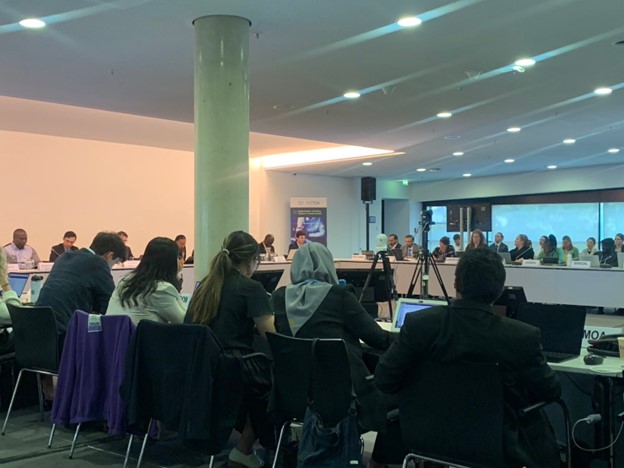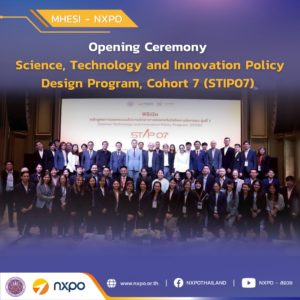NXPO Director of Sustainable Policy Division Dr. Saravanee Singtong and NXPO Policy Specialist Dr. Chanida Sansaard participated in the 60th sessions of the UNFCCC Subsidiary Bodies (SB60) and side events held from 2 to 20 June 2024 in Bonn, Germany. Representing Thailand’s National Designated Entity (NDE) for climate technology development and transfer, they engaged in discussions on technology development and transfer, as well as research collaboration alongside the Department of Climate Change and Environment (DCCE), which serves as Thailand’s National Designated Authority (NDA) under the UNFCCC. SB60s functioned as a preparatory meeting for the 29th Conference of the Parties (COP 29) scheduled for 11 to 22 November 2024 in Baku, Azerbaijan.
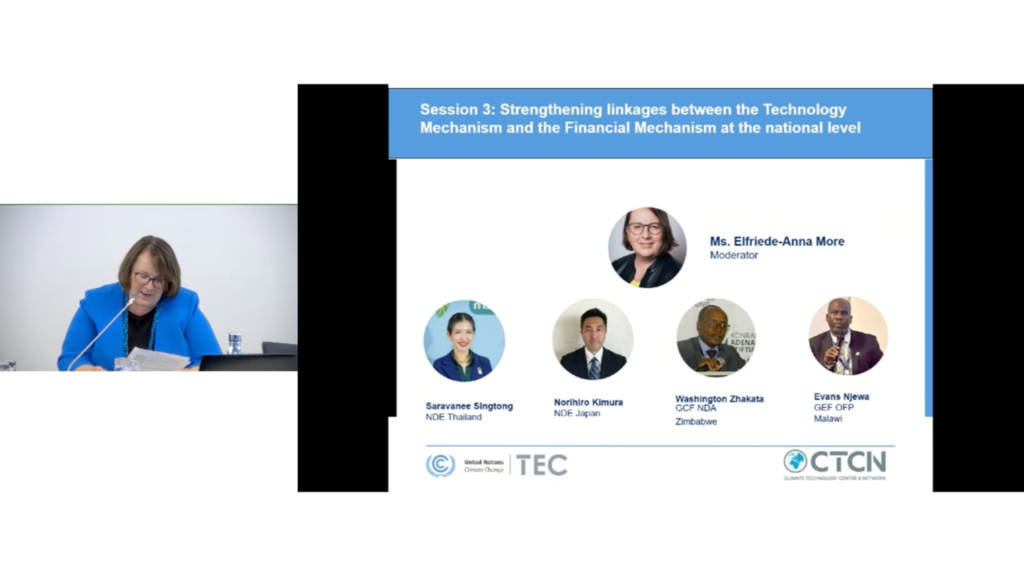
NXPO representatives attended the 60th sessions of the UNFCCC Subsidiary Body for Scientific and Technological Advice (SBSTA) and the UNFCCC Subsidiary Body for Implementation (SBI), focusing on scientific and technological issues and the implementation of the UNFCCC framework. These discussions aimed to advance climate finance, build capacity for climate adaptation, and facilitate the enhanced transparency framework (ETF) to improve GHG emission reduction performance and promote ambitious National Determined Contributions (NDCs).
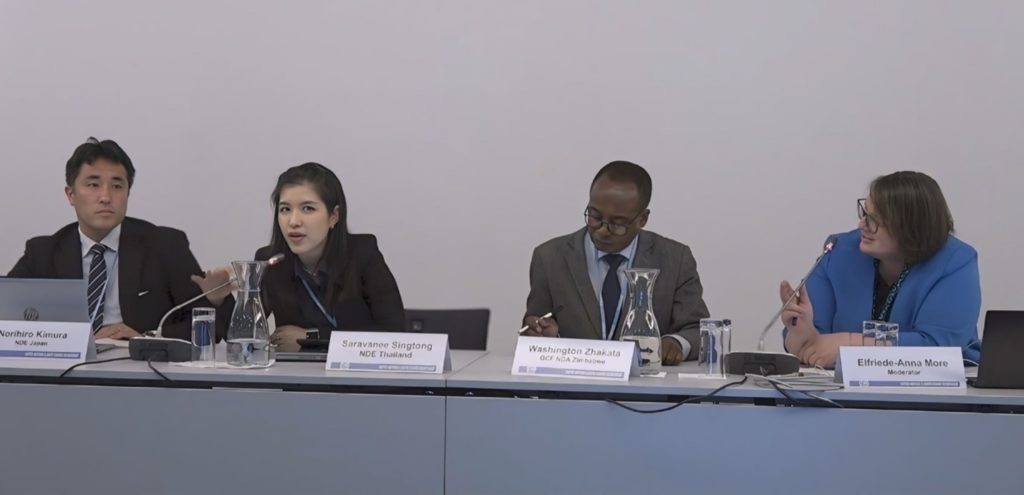
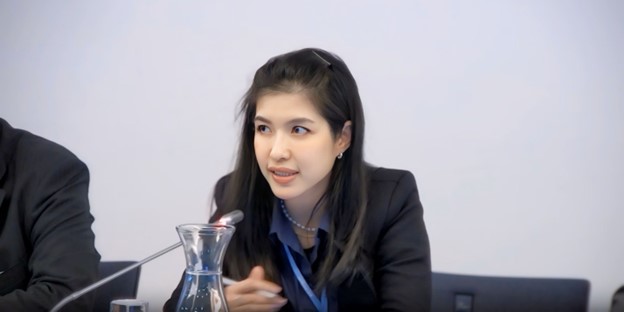
During the In-session workshop on Linkages between the Technology Mechanism and the Financial Mechanism held on 4 June, Dr. Saravanee participated in a panel discussion on “Strengthening linkages between the Technology Mechanism and the Financial Mechanism at the national level”. The in-session workshop aimed to take stock of the linkages between the Technology Mechanism and the Financial Mechanism and explore ways to maintain and enhance linkages. Thailand was the only developing country invited to share its NDE experiences and recommendations at the forum and to propose opportunities for strengthening these linkages. This workshop contributed to drafting the COP 29 Decision of SBI 60 agenda item 13 on the linkages between the Technology Mechanism and the Financial Mechanism of the Convention.
Dr. Saravanee discussed the role of NXPO as NDE Thailand in linking the Technology Mechanism and the Financial Mechanism through Technical Assistance (TA) projects. Before implementing a project, strategies are developed to connect it to larger programs and/or stakeholders. For example, the Hydrogen project is linked to the Saraburi Sandbox and the Hydrogen Club Thailand, to ensure a more significant impact. NXPO
also allocates budget to develop proposals seeking financial support from the GCF or GEF. Dr. Saravanee highlighted the success factors of this endeavor as follows:
- The NDE should be assigned to an agency involved in national technology and innovation policies, with the capacity to bring Technical Assistance projects to a national agenda.
- A strong relationship between the NDE and NDA helps elevate Technical Assistance projects by seeking funding from the GCF or GEF or other financial mechanisms and integrating them into the national GHG reduction plan.
- The NDE must identify the country’s climate technology gap and stakeholders in both the public and private sectors and understand the GCF funding application process, which requires close cooperation between the NDE and NDA.
- A top-down policy from COP or UNFCCC can help facilitate the connection between the technology mechanism and the financial mechanism. For example, the GCF should prioritize projects that scale up from Technical Assistance. This top-down policy approach will help the two mechanisms succeed at the national level (NDA-NDE linkage) and the international level.
Limitations and gaps in linking the technology mechanism and the financial mechanism were also discussed. In some countries, the NDA and NDE agencies have different priorities due to being under different ministries. Given that financial support from the GCF and GEF is contingent upon the Technology Needs Assessment (TNA) outcomes, if a country’s TNA is not updated to reflect current contexts, it can result in ineffective operations.
